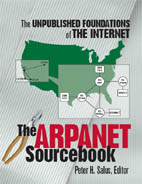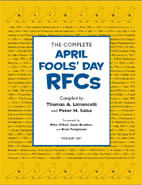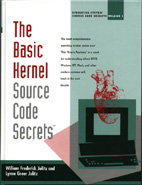Welcome to Peer-to-Peer Communications LLC, publisher of computer history books.
- The book that documents a pristine early version of Thompson and Ritchie’sUNIX kernel, code widely considered the most elegant/efficient ever written
- 1977 book that was still being used as a case-study textbook in MIT operating system courses until 2005!
- Named “Book of the Year” by Unix Review magazine
- The most famous suppressed book in computer history!
Click here for more information.

- The original-source technical reports documenting the initial construction and connection of the ARPANET, the world’s first ‘real’ heterogeneous computer network (the direct predecessor of today’s Internet)
- The earliest RFCs (Request for Comments), the researchers’ write-ups of design problems encountered and resolved, which were de facto the ARPANET’s and later the Internet’s essential reference documents. A few of these have never before been published!
- Forewords by networking pioneers Leonard Kleinrock and Steve Crocker
- An early feasibility study arguing such a network could work.

The Complete April Fools’ Day RFCs
contains decades worth of the best April Fools’ Day techie pranks (i.e. fake RFCs) that mischievous IETF minds foisted upon an often unsuspecting world. Get a copy for all the Netheads in your life (virtual life too!) with a sense of humor.
“engineer humor at its finest — geeks making up stuff to amuse other geeks” — Boing Boing, 5/4/2007

Authors are selling copies directly
The Basic Kernel
(Operating System Source Code Secrets Vol. I)
- A unique cross-platform comparison of how fundamental functions are handled by UNIX, Windows 3.x, DOS, and Mach .
- Named as one of Top 10 Books of 1996 by Unix Review Magazine
- Extensively describes fundamental kernel functions (e.g. bootstrap, memory allocation, and x86 specifics) as well as newer concepts such as dynamic configuration, role-based security, and threads.

